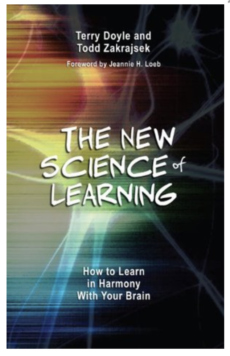💡 3-Sentence-Summary
Learning how to learn is one of the most powerful skills you can learn. This book reveals how most people’s learning strategies are inefficient, ineffective and wrong. The book reveals how effective learning strategies look like and how you can retain knowledge and skills for a lifetime (vs just for a test).
💭 What I think about it
While this is not my favourite book on learning, it is a good refresher on the underlying principles of learning how to learn. For example, it explains learning and memory need two components: the learned information itself and a so-called retrieval cue that helps you find the learned material. It also enforces why retrieval is so powerful: when you recall a memory both it and its cue are reinforced. With every additional retrieval, you strengthen the connection and can access your memory faster.
🌟 Who benefits from reading this book?
This book is particularly good for students who look for ways to improve their learning.
📚 How the book changed my life
To be honest, the book didn’t change my life in a meaningful way. But it taught me how to use new information to make meaningful connections in my brain and that a multi-dimensional learning experience that involves many senses is effective.
✍️ My Favorite Quotes
- Higher education is odd in that we don’t typically teach teachers how to teach, students how to learn, or administrators how to lead.
- Better learning does not always require more effort or more time; rather one need only effectively align how the brain naturally learns with the demands of the college classroom.
- New learning requires a considerable amount of practice and a meaningful connection to other information in order to become a more permanent part of memory.
- Your teacher’s goal is to get you to do as much of the work in the learning process as possible, because the more work your brain does, the greater the number of connections established. More connections in turn increase the likelihood that more permanent memories will be formed.
- Only when you practice, read, write, think, talk, collaborate, and reflect does your brain make permanent connections. Your teachers cannot do this for you, and at times this work will make you tired.
- To remember what you need to know in school, you need to have repeated exposure to the material and then you need to use it. This strengthens both the memory and the cues for recovering the memory so that you can use the information when you need it.
